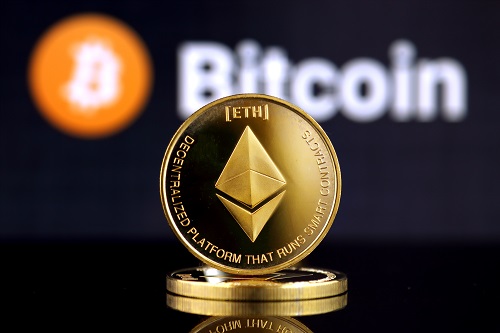Ordinals and enterprise adoption drove network revenues for Bitcoin and Ethereum in May: Report

- Bitcoin revenue jumped 249% YoY in May, while Ethereum network fees rose 53.7% in May, according to a research report by the ETC Group.
- Ordinals and enterprise adoption drove network revenues for Bitcoin and Ethereum respectively.
- Regulation and macroeconomics remain key factors even as benefits of tokenisation attracts major banks.
The current market outlook for Bitcoin and crypto continues to suffer from the flurry of activities around the actions of the US Securities and Exchange Commission (SEC) after it sued Binance and Coinbase.
While June started off with wild volatility that has pegged prices below key levels, a new report suggests the market headwinds in May did little to slow down network revenue generation for the world’s two largest blockchains by market cap over the month.
Bitcoin and Ethereum network growth
The report by German-based ETP (exchange-traded products) issuer ETC Group highlights a significant jump in network revenue for both Bitcoin and Ethereum over the past month.
ETC Group Research team’s Tom Rodgers (Head of Research) and Hanut Singh (a Research Analyst at ETC Group and formely with CoinJournal), shared the outlook via an overview of the biggest trends and events in crypto over the month – from regulation to macroeconomics and adoption as signaled by on-chain data.
Writing in the Digital Assets and Metaverse Monthly Review: May 2023, Rodgers and Hanut noted that although continued headwinds saw the total crypto market cap flatline near $1.1 trillion.
On the macro level, the uncertainty around the US debt ceiling debate weighed on crypto markets. Elsewhere, the regulatory front saw the non-friendly approach by the US SEC and UK’s Financial Conduct Authority (FCA) continue to impact sentiment.
However, despite these factors, there was noteworthy growth in terms of network revenue for the leading blockchains.
“…revenues generated by the two largest blockchains by market cap rose substantially in May due to increasing user bases and new technological developments, most notably Ordinals for Bitcoin, and increasing adoption for Ethereum enterprise solutions,” the ETC Group research team wrote.
Ordinals helped push Bitcoin revenue up 249% YoY in May
According to the ETC Group report, the weekly revenue on the Bitcoin network increased by 249% year over year in May. This was largely driven by the spike in Ordinals, which as CoinJournal reported here, saw BTC miners record multi-year highs in transaction revenue.
The demand for the Bitcoin Ordinals meant transaction fees amounted to 29.57% of monthly revenue for miners – the last time it was that high was during the 2017 bull market that had seen the first real foray into crypto by institutional investors.
Ethereum network fees jumped 53.7% in May
For Ethereum, renewed interest in staking was visible in May despite the fears of a major withdrawal rout after the Shapella upgrade. Indeed, as the ETC Group report highlights, the supply of staked ETH on the mainnet rose from 14% to almost 20% at the end of the month. About $46 billion worth of ETH was staked, representing a 200% jump in the percentage of supply locked on the network.
This has happened even as ETH supply has declined since the Merge. Meanwhile, monthly fees rose by 53.7% in the month – from $241 million in April to $448 million in May. Increased demand for Ethereum blockspace is behind the jump in total network fees, the researchers noted.
Crypto regulation in the US
While US presidential candidates Ron DeSantis (R) and Robert F. Kennedy Jr. (D) have indicated support for Bitcoin, the overall outlook on US crypto regulation remains largely hostile even with bipartisan engagements.
The SEC recently ramped up its crackdown with the lawsuits against Binance and Coinbase, even as the crypto community highly anticipates the outcome of another high profile case between the SEC and Ripple Labs over the XRP token.
This even as Asia emerged as a strong destination for crypto, led by Hong Kong’s recent regulatory guidelines that have seen OKX, Huobi and other exchanges apply for licenses. The adoption of the MiCA rules by Europe was also a notable event that could make the bloc attractive to more US-based crypto businesses.
Tokenisation sees major banks eye blockchain adoption
May also witnessed increased institutional interest in blockchain amid further growth in tokenisation.
Interest peaked after State Street, the second-oldest US bank, hinted at a move likely to help bring $1.4 trillion worth of assets onto the blockchain via tokenisation of ETFs. The issue of tokenisation and its benefits had also previously been highlighted by the Bank of New York Mellon.
That’s also the view of Citibank, which has suggested tokenisation could see up to $4 trillion of liquid and illiquid assets brought on-chain.